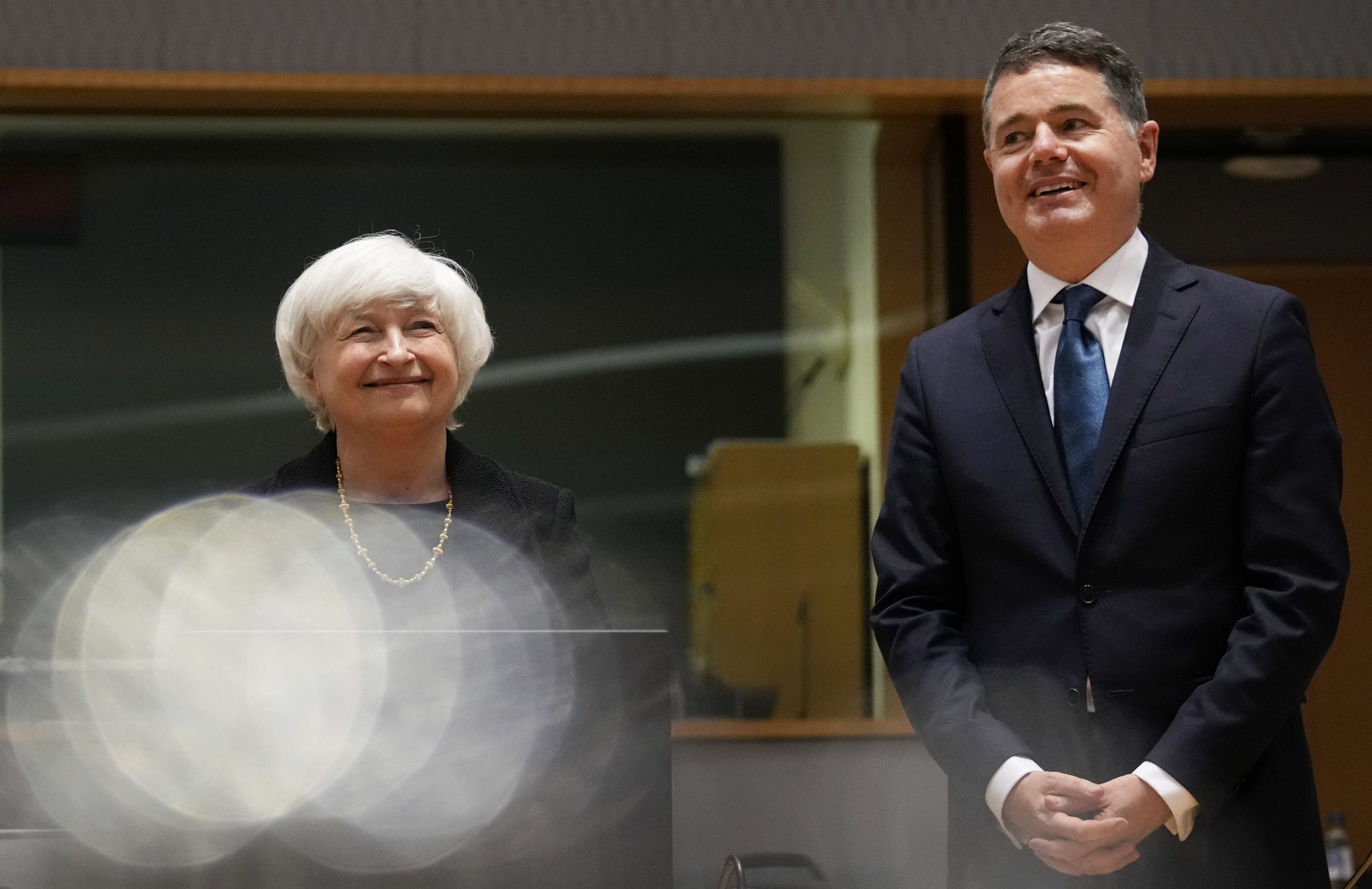Ireland expressed reservations about the Biden administration’s proposed global minimum tax after Finance Minister Paschal Donohoe met with Treasury Secretary Janet Yellen on Monday.
Yellen traveled from her G-20 meet-up in Venice, Italy, to Brussels to meet with the Eurogroup. On Monday, she met with Donohoe, and while a spokesperson said it was a “good and constructive” meeting about the global minimum tax, Ireland is still not on board.
“Minister Donohoe recalled the Irish position on the matter,” the spokesperson said of the finance minister’s comments to Yellen.
Ireland is one of just seven of the 139 countries part of the global minimum tax negotiations that have not signed on to an agreement for a global minimum tax of at least 15% on international businesses, a number that is higher than Ireland’s famously competitive corporate tax rate of 12.5%. The other six countries are Estonia, Hungary, Kenya, Sri Lanka, Barbados, and Nigeria.
HERE ARE THE NINE COUNTRIES SPURNING GLOBAL MINIMUM TAX SOUGHT BY BIDEN
Yellen and President Joe Biden have hailed momentum on the global minimum tax, which has been years in the making, as “historic,” although there are still several obstacles in the way of it becoming effective, as the agreement was only inked in broad terms and details of its implementation still must be worked out within the Organization for Economic Cooperation and Development.
If the global minimum tax is implemented by all the countries that have signed on thus far, it would represent more than 90% of global gross domestic product, the White House has said.
Irish support (in addition to Estonian and Hungarian) is key to the functional implementation of the new regime because all European Union member states must agree to tax reform, including the proposed global minimum tax. The legislatures and parliaments of the dozens of countries that have already said they support the plan would still have to give the deal the greenlight.
Despite Ireland’s reservations about the 15% plan, its leaders have expressed a willingness to throw their support behind some form of comprehensive global tax agreement. Donohoe recently said that he has “consistently spoken” about his desire for a “comprehensive, sustainable, and equitable agreement on the international tax rules at the OECD that meet the needs of all countries.”

“I was not in a position to join the consensus on the agreement and specifically a global minimum effective tax rate of ‘at least 15%’ today,” he said after the OECD first announced support for the agreement by the vast majority of its members.
Peter St. Onge, a research fellow for economic policy at the Heritage Foundation, told the Washington Examiner earlier this month that the EU will likely apply pressure in order to make the three holdouts coalesce. He surmised that the EU will eventually find a way to get to an agreement.
“If I had to guess, there is going to be a certain amount of horse-trading going on. All three of those countries are fairly small — it would be pretty easy to make them whole in some other way,” St. Onge said.
CLICK HERE TO READ MORE FROM THE WASHINGTON EXAMINER
Hungary and its 9% corporate tax rate are likely going to pose the biggest challenge for the EU. It is led by populist Viktor Orban, whom many see as an autocrat, and whose government has pushed back strongly on the notion of any plan that would “lead to tax increases and weaken competitiveness.”

